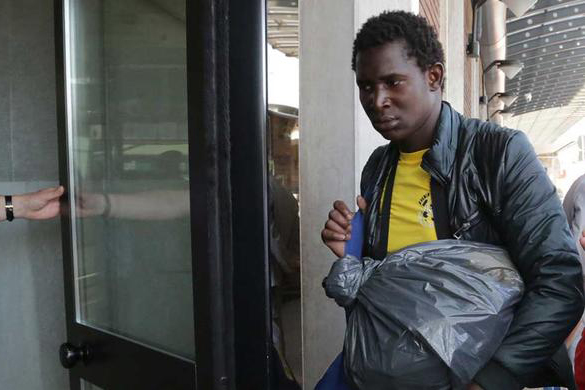SWEDEN
The Scandinavian Country is among the “favourite” destinations of migrants arriving to Europe. Kristina Hellner (diocese of Stockholm) explained why

As many as 6901 people filed and asylum request in Sweden in the period September 14-20, most of them from Syria, Afghanistan and Iraq. Among them 1270 are non-accompanied children. These figures are published and updated daily, released by the Migrationsverket, the National Migration Service. The 2015 forecasts envisage 74 thousand asylum requests. Among the Nordic countries, Sweden is the preferred destination by all those seeking new life opportunities. Doors open to Syrians. Why do so many refugees choose Sweden as their final detination? “Because it’s the only EU country that gives Syrian refugees permanent residence permits, instead of temporary ones”, according to a decision taken in 2013, before the escalation of the armed conflict in Syria. The Syrians represent the majority of those who leave their home Countries, headed to where their compatriots are. Moreover, in general terms Sweden “treats refugees with generosity both in terms of family reunification and financial support”, said Kristina Hellner, from the information Service of the Stockholm diocese. It is not the case in its neighbouring country, Denmark, which in recent months has adopted migration policies that go in the opposite direction, both in terms of financial assistance and family reunification. And not even Finland, that is presently considering closing its national borders. Conversely, to those arriving in Sweden the Migrationsverket provides special buses that leave from the main cities and bring refugees to the homes of their friends and relatives. The country has also simplified asylum-request procedures that can be filed in all major municipalities and not only on the border. The value of solidarity. The social-democratic government led by Stephen Löfven has centred its national and international campaign on solidarity. “The government has asked everyone to help, seeking the best possible options. Last week the Prime Minister launched an appeal to municipal councils, regions, churches, associations and unions”, Hellner told SIR Europe. Presenting the new budget proposals, on Monday September 21, the minister of Finance Magdalena Andersson, pointed out that 2016 expense priorities are incentives for social housing and rent, healthcare and extraordinary contributions to town councils to address the inflows of migrants. During a meeting with Chancellor Angela Merkel in Berlin, at the beginning of September, Löfven presented a “Decalogue” drawn up by his government aimed at the reform of EU policies on refugees, which states at the top of the list: “the EU must develop a permanent, binding redistribution mechanism in case of disasters”. Second item on the agenda: “The EU must continue giving priority to the saving of human lives”. Churches in the forefront. Also Swedish Churches are mobilizing for the reception of migrants. “Some churches and parishes have opened their doors, granting a temporary home and beds to the refugees upon their arrival”, said Kristina Hellner. The Catholic bishop of Stockholm, Msgr. Anders Arborelius, on 17 September sent a letter to parishes with the invitation to appoint a “representative for the refugees” tasked with involving parishioners in charitable assistance to the new migrants, acting as trait-d’union between the refugees and the families of Catholic communities, following unaccompanied minors in particular and organizing language courses. “Refugee coordinators” can apply by November 30, “in order to be prepared for this service by the beginning of the Holy Year of Mercy”, the bishop wrote. Money and food collection for the new migrants have been activated on Church websites and by charitable associations of all religious denominations. At ecumenical level, the Christian Council of Sweden, chaired by the bishop Arborelius, on September 10 released “an appeal inviting communities and individuals to help the refugees in whatever way they can, and to ask policymakers to focus their efforts on solidarity initiatives and networks to enable these people to reach Europe in full safety”, Hellner said. Also the first session of the 2015 Synod of the Lutheran Church in Uppsala held September 22-28, has on the agenda several “motions” on the refugee crisis, the Middle East, the persecution of Christians. A torn society. “Sweden always had a generous approach towards the reception of refugees, although in the past 10 years there has been strong opposition that fuelled the popularity of the Swedish Democrats, the left-wing nationalistic party”, Hellner added. In the past 2014 elections they obtained 13% of all votes. “But when the photograph of young Aylan appeared in media outlets, the Swedes had a very strong reaction towards the unfolding of events in the Mediterranean and the treatment of refugees”, Hellner said, using the expression “collective awakening”, whereby “many volunteers felt the yearning to ensure reception”.